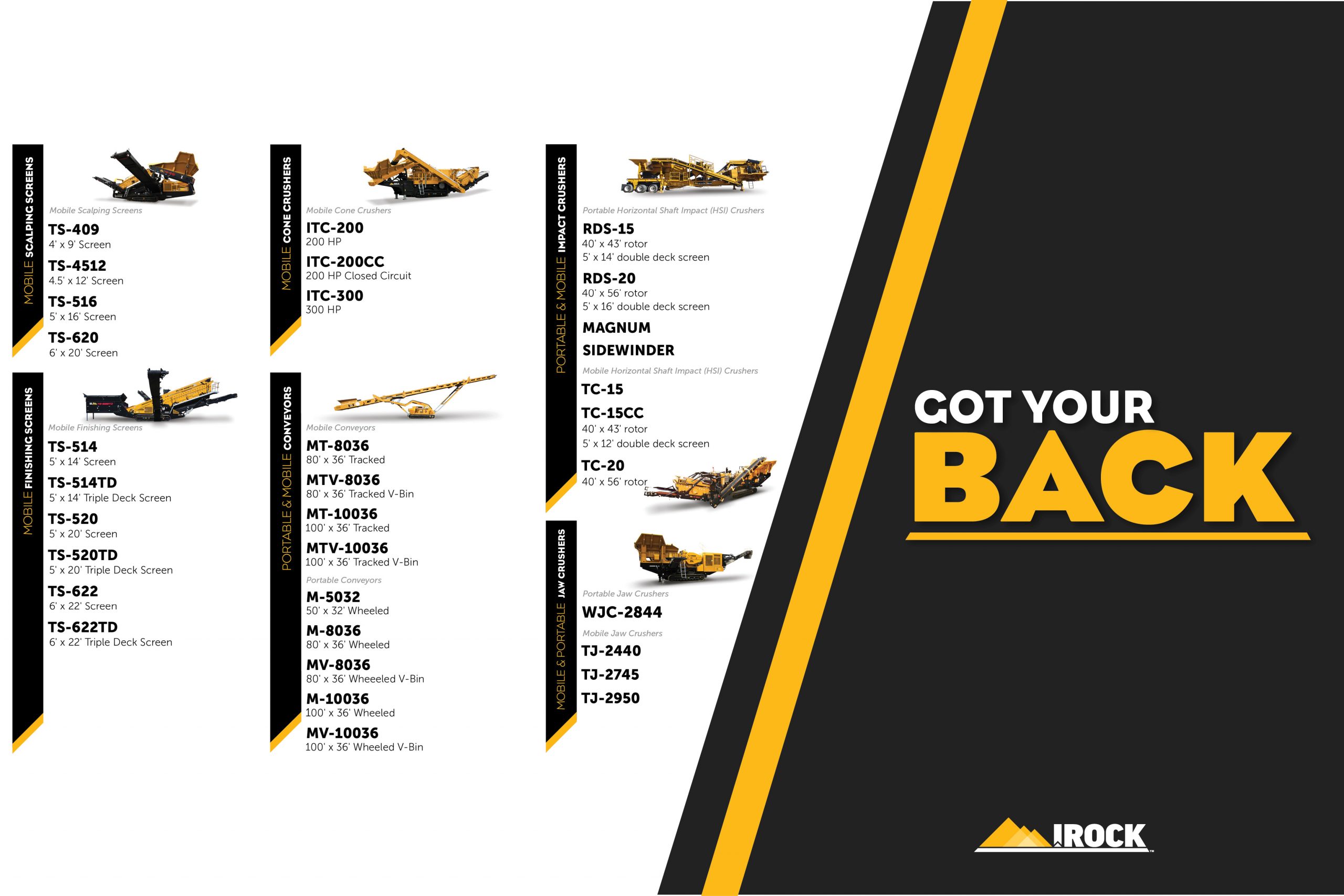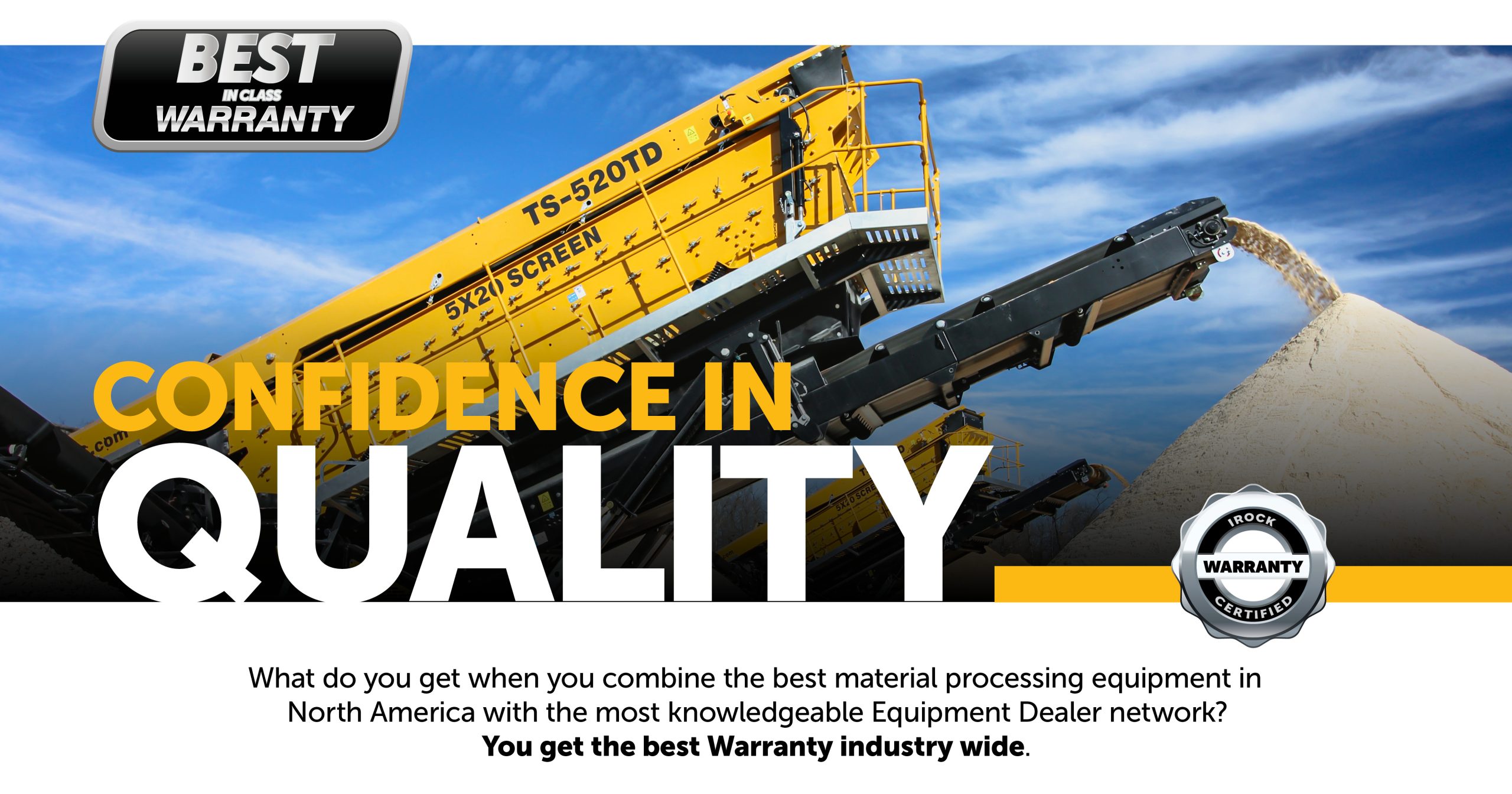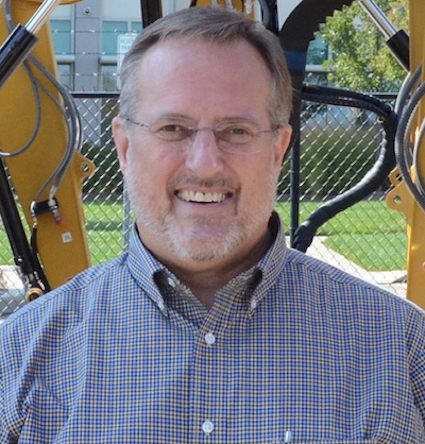Tracked (Mobile) Equipment vs Wheeled (Portable) Equipment
Tracked (Mobile) Plants
Traditionally, crushing and screening has been done by fixed plants (on permanent structures such as concrete pads) or semi-mobile plants (chassis mounted). But the more you crush, the further the face gets away from the crushers and screens, increasing cycle times of loading equipment and haul trucks, adding costs—sometimes substantially—to the cost per ton.
We call these situations “Chase the Face,” and the ideal solution is to use a crushing and screening unit on tracks.
Especially in sand and gravel pits, tracked mounted crushers and screens easily move to keep up with the mining and are fed by loaders or excavators. The face is never far away. This practice applies to rock quarries as well. The tracked equipment is tracked out of the blast zone then tracked back to the shot rock after the blast for crushing at the face.
Managing a Dirty Pit
Take a look at this New Mexico operator. They had an application challenge: processing rock from a very dirty pit. In this instance the dirt was around +40% of the total material and they really needed the rock. Trucking from the face of the pit to a fixed plant was possible but there was still the problem of +300tph of clean rock for the crusher and then having to haul the dirt back to the pit.
The solution: IROCK TS-620 Mobile Scalping Screen where they could keep the screen close to the face and feed with a large excavator. It enabled them to separate the rock from the dirt, leaving the dirt at the excavated site for backfilling, and loading the clean rock to the crusher. Furthermore, they exceeded expected total throughput in tph. They were now averaging around 500 tph and have over 8,000 hours on the IROCK TS-620.
Wheeled (Portable) Plants
Portable wheeled plants are ideal for those large jobs where space is adequate, the footprint of the crushing and screening spread is not critical, and frequent moving and set up is not required. The plants are set up and generally are not moved. As progress is made mining the face, the rock or sand and gravel is transported by conveyor or haul trucks or pushed to the crusher by a dozer for an excavator or wheel loader to load the portable crushing and screening plants installed in somewhat of a semi-mobile plant nature.
Most portable plants are either all electric, powered by an onsite generator or line power, or come equipped with an onboard diesel gen-set. Either way, the functions of the plants are driven by electric motors which are extremely efficient. Operators of portable equipment report lower operating costs, compared to track equipment, and ease of maintenance. Also, the energy cost per ton is less for portable wheeled plants than mobile tracked plants.
Wheeled Crusher is the Perfect Solution
One of our customers in Arizona found the perfect fit to solve his operations challenges. There were several reasons he was leaning towards a wheeled unit and ultimately invested in the IROCK RDS-20 Portable Impact Crusher (HSI).
- A wheeled unit offers greater efficiencies with electric driven components vs. hydraulic driven components
- This producer had ample space with a very large area to operate, so the equipment footprint was not a drawback. The operation provided adequate room for the size of the plant, stackers, stockpiling, and movement of trucks and other equipment.
- The plant would rarely be moved so tracks are unnecessary, and this additional service item can be avoided.
- Ease of maintenance
- The wheeled plant is designed for easier and larger entry for service technicians to access parts and components.
- Longer machine economic life
- Many end users believe that the economic life on wheeled equipment lasts much longer and is less costly with daily maintenance costs
- More tph and lower cost per ton
- Wheeled Closed Circuit Crushing Plants offer larger screens than tracked plants and constant power to the crusher and screen without the fluctuations as with hydraulics. This results in more tons per hour and less cost per ton. Savings is experienced in total crushing, screening equipment, support equipment (excavators, wheel loaders, trucks, etc.) owning and operating costs, fuel costs, and labor.
Contractors offering Turnkey Solutions
Many of IROCK’s customers are contractors working in recycling, aggregate, mining, concrete, and asphalt. It is extremely important for these companies to have the flexibility to offer their customers wheeled and tracked equipment to fit the different needs from a construction site to a sand and gravel operation. Each job needs careful consideration to determine what units will provide the most efficiency, productivity, and be the most economical. One of IROCK’s contractor customers in California has to also consider the power options of the equipment with the limited emissions restrictions they have within the areas they operate. In one particular area, the cap is 900 hours per year and they needed 1,500 – 2,000 hours per year with their diesel track mounted equipment. They were looking for a solution that was ultra-portable, competitively priced, extremely compliant and environmentally sensitive with no cap involved, to allow them to move in and operate at will. In this air district where the opportunity to use a diesel engine is limited, the IROCK RDS-20E Portable Horizontal Shaft Impact (HSI) Crusher (all-electric unit) was a perfect solution to operate on-site without the constraints.
IROCK prides itself on offering our customers wheeled and tracked options because we understand every operation is different, each producer experiences different challenges, and IROCK offers solutions across the board to meet our customer’s needs. For any of your crushing, screening, and conveying needs you can contact sales@irockcrushers.com



